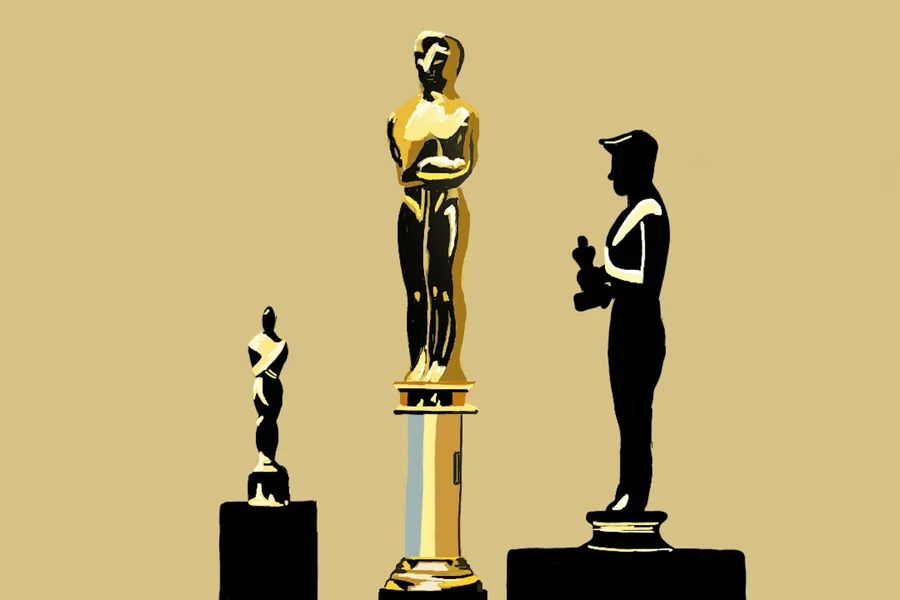Introduction
In an age where streaming platforms dominate and social media democratizes celebrity culture, some might argue that award shows have lost their relevance. Yet, despite the changing media landscape, award shows remain a vital part of the entertainment industry—and even more important than ever. These glittering ceremonies not only celebrate artistic excellence but also shape cultural narratives, provide a stage for social issues, and unify audiences in a world that often feels fragmented. This article explores why award shows are more important than ever, highlighting their evolving role in entertainment and beyond.
Celebrating Excellence and Inspiring Future Generations
At their core, award shows like the Oscars, Grammys, Emmys, and Tonys celebrate artistic achievements. They recognize the hard work, creativity, and dedication of actors, musicians, writers, and other creators who push the boundaries of their crafts. In a world oversaturated with content, these awards help audiences identify standout works and talents that might otherwise get lost in the noise.
For artists, winning or even being nominated for a prestigious award can be a career-defining moment. It brings validation, opens doors to new opportunities, and cements their place in industry history. For young people aspiring to careers in entertainment, watching their heroes achieve such milestones can be incredibly inspiring, fueling dreams and motivating the next generation of creatives.
Driving Cultural Conversations
Award shows do more than celebrate the arts—they drive cultural conversations. When Beyoncé performs at the Grammys, or when a film like Parasite wins Best Picture at the Oscars, it sparks discussions that ripple through social media and the press. These moments transcend entertainment, often touching on issues of diversity, inclusion, representation, and social justice.
For example, when Moonlight won Best Picture at the 2017 Oscars—after an unforgettable envelope mishap—it not only honored a groundbreaking film but also marked a shift toward recognizing stories from marginalized communities. Similarly, the increasing presence of female directors and artists of color among nominees reflects an industry slowly acknowledging the importance of diverse voices.
These conversations are essential in shaping the cultural landscape, challenging old norms, and pushing for progress. Award shows provide a global stage for these moments to unfold, ensuring that important issues are seen and heard by millions.
Uniting Audiences in a Fragmented Media Landscape
Today’s media landscape is fragmented, with streaming services, social media, and on-demand platforms allowing viewers to curate their own entertainment experiences. While this empowers consumers, it also means that shared cultural moments have become rarer. Award shows remain one of the few events that bring diverse audiences together for a collective experience.
When the Oscars, Grammys, or Golden Globes air, people tune in not just for the winners but also for the fashion, the performances, the speeches, and the unexpected moments. These events dominate trending topics, memes, and watercooler conversations the next day, creating a sense of unity in an otherwise individualized entertainment world.
Highlighting Underrepresented Stories and Artists
In recent years, award shows have made strides in highlighting underrepresented stories and artists, thanks in part to industry pressure and social movements like #OscarsSoWhite and #MeToo. Recognition from award shows can bring marginalized voices into the mainstream, giving them a platform to reach wider audiences.
For example, when Chloé Zhao won Best Director at the 2021 Oscars for Nomadland, she became only the second woman and the first woman of color to win in that category. Her win was a milestone that inspired countless aspiring female filmmakers and signaled progress toward gender equality in the industry.
Award shows also spotlight independent films, lesser-known music genres, and innovative TV series that might otherwise struggle for mainstream attention. This amplification of diverse voices and stories is crucial in fostering a more inclusive and representative entertainment industry.
Economic Impact and Industry Visibility
Award shows are not just cultural touchstones—they’re also economic engines. A nomination or win can significantly boost a film’s box office revenue, a musician’s album sales, or a show’s streaming numbers. The so-called “Oscar bump” often leads to increased ticket sales, while a Grammy win can propel a song to the top of the charts.
For studios, record labels, and streaming platforms, award season is a critical period for marketing and promotion. It generates buzz, attracts investors, and validates creative projects. The economic ripple effect extends beyond the winners to the entire industry, from costume designers and make-up artists to cinematographers and sound engineers.
Award shows also provide job opportunities for event planners, stylists, publicists, and countless other professionals whose livelihoods depend on the entertainment ecosystem.
A Platform for Advocacy and Social Change
Award shows have increasingly become platforms for advocacy and social change. Acceptance speeches and red-carpet interviews often double as moments of activism, where stars use their visibility to highlight causes close to their hearts.
From Marlon Brando declining his Oscar in 1973 to protest the treatment of Native Americans to Leonardo DiCaprio’s impassioned plea for climate action, these moments can reach global audiences and spark real-world conversations.
In recent years, award shows have been instrumental in raising awareness about issues like gender equality, LGBTQ+ rights, racial justice, and mental health. This blending of entertainment and activism reflects the evolving role of celebrities as both artists and influencers with a responsibility to use their platforms for good.
Adaptation to the Digital Age
Some critics argue that award shows are outdated in the age of social media and streaming, but the reality is that many have adapted to the digital age remarkably well. Shows now leverage Twitter, Instagram, TikTok, and live-streaming to engage younger audiences and extend their reach beyond traditional television broadcasts.
For example, the Oscars’ presence on social media allows fans to follow the red carpet in real time, while the Grammys’ behind-the-scenes content on YouTube offers fans a glimpse into rehearsals and backstage moments. These digital extensions not only enhance the viewing experience but also keep award shows relevant in a media landscape where attention is the most valuable currency.
Showcasing Global Talent
In an increasingly interconnected world, award shows have expanded their horizons to embrace global talent. The success of international films like Parasite at the Oscars and the global chart dominance of artists like BTS at the American Music Awards reflect a shift toward recognizing and celebrating talent from around the world.
This global perspective not only enriches the entertainment industry but also fosters cross-cultural understanding and appreciation. It reminds audiences that creativity knows no borders, and that the best stories and music can come from anywhere.
Conclusion
Award shows are more than just glamorous nights of trophies and speeches—they are cultural landmarks that celebrate artistic excellence, spark conversations, and shape the entertainment industry’s future. In a fragmented, fast-paced digital world, they offer a rare moment of unity and a stage for important social issues to gain global attention.
From inspiring future generations to boosting economic opportunities, award shows play a multifaceted role that extends far beyond the screen. As they continue to evolve and adapt to new media realities, their importance in celebrating, challenging, and shaping our culture remains undeniable.
Award shows remind us that behind every song, film, and performance is a story worth recognizing—a story that can change the way we see the world.



